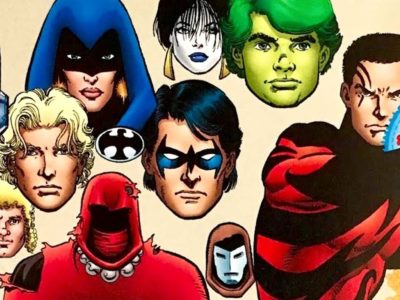
[ad_1]
Following Maus being banned by a Tennessee School Board, here’s a look at the thematic similarities between it and comic’s flagship title Superman.
In a controversial move, Tennessee’s McMinn County School Board unanimously voted to ban Art Spiegelman’s Maus from its curriculum. The first graphic novel to earn a Pulitzer Prize, Maus recounts the life and times of Spiegelman’s father Vladek as a Polish Jew and Holocaust survivor. Spiegelman reimagines the individuals involved as different animals, from Jews being represented as mice, Germans represented as cats, the Polish as pigs, among other species and nationalities present in the story. Universally acclaimed for blending biography and history in a postmodern narrative, Maus’ themes aligning with racism and xenophobia align with those of the comic book medium’s most iconic character: Superman.
Here are how Maus and Superman each confront the specter of racism in their own respective ways and why the titles have their own enduring merit, more than deserving to be available to readers rather than shunned to the sidelines.
The Legacy of Maus
Maus follows Spiegelman himself speaking with his estranged father Vladek in 1978 interspersed with Vladek’s life growing up in Poland during the 1930s before ending in 1945. Even before Germany invades Poland in 1939, Vladek and his family face mounting Anti-Semitism, with conditions significantly worsening under Nazi occupation. Confined to the Sosnowiec Ghetto, Vladek’s family is divided and face extreme persecution, with Vladek and his young wife Anya eventually sent to the concentration camp Auschwitz.
Spiegelman employs the utilization of animal representing different nationalities to highlight the absurdity of dividing people amongst such uniform lines through this metaphor. When Spiegelman is questioned in-narrative about how he has selected how individuals cross-nationalities are depicted, he knowingly deconstructs the technique. Similarly, Spiegelman depicts racism in a more nuanced light, with Vladek demonstrating his own complicated stance on race as other different individuals in World War II Poland.
Superman and the American Dream
Superman himself was conceived by Jewish American creators Jerry Siegel and Joe Shuster, the sons of immigrant parents. This was has been speculated to inform Superman’s background, an infant arriving in the American heartland as the refugee from the doomed planet Krypton. Growing up in rural Kansas before moving to the big city, Clark Kent grew up from his humble roots to become the most powerful superhero in the DC Universe and personification of the American Dream.
Much of Superman’s conflict has been fueled by xenophobia, with Superman open and honest with the public about his extraterrestrial origins. Superman’s biggest opponent has been Lex Luthor, whose agenda to discredit and destroy the Man of Steel has been flagrantly fueled by his distrust and jealousy of an alien replacing him as Metropolis’ hero. This distrust over Superman’s extraterrestrial background has extended to the American military and government, occasionally and openly questioning Superman’s true loyalties despite his history in defending the DCU.
Superman Smashes the Klan
One of the most visible examples of Superman taking a hardline stance against racism was when the incredibly popular The Adventures of Superman radio show decided to pit the Man of Tomorrow against the Ku Klux Klan. A 1946 storyline “Clan of the Fiery Cross” saw the Anti Defamation League team up with the radio show’s producers to expose and demystify the Klan’s real-world practices as Superman confronted a facsimile of the organization in the radio show.
Coupled with an investigation by human rights activist Stetson Kennedy that exposed several high-profile Klan leaders, the storyline reportedly drove down Klan recruitment numbers nationwide. The story’s success led the producers to craft additional stories that promoted racial and religious tolerance, messaging that has also been echoed in the comics for years. “Clan of the Fiery Cross” would be adapted in the 2019 comic book miniseries Superman Smashes the Klan by Gene Lueng Yang and Gurihiru to widespread critical acclaim.
About The Author
[ad_2]






